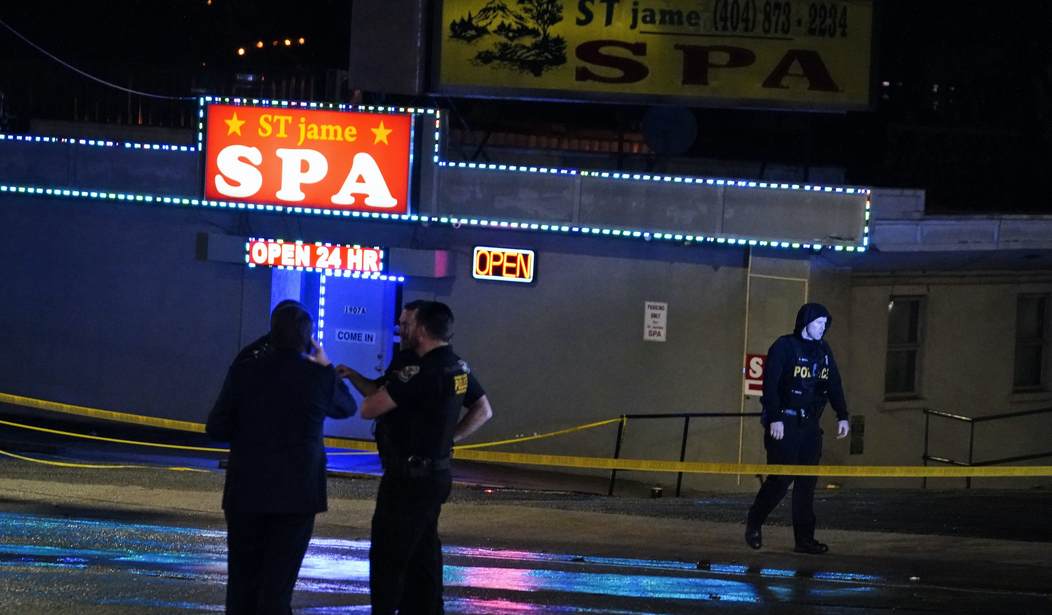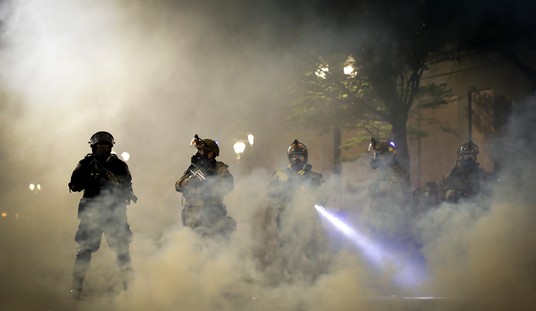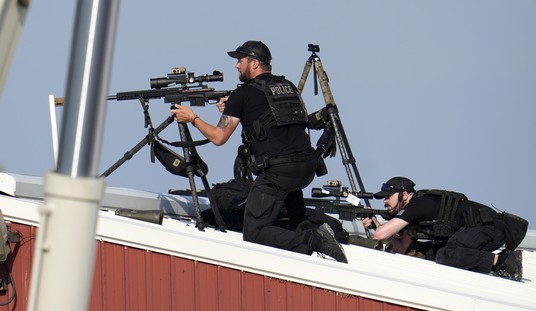It’s not necessary to see the Atlanta spa shootings — in which eight people were killed by a deranged man who allegedly frequented the establishments he targeted for sexual gratification — through the lens of a larger culture war grievance. It’s a sad, and increasingly common, tale of a very disturbed individual with no respect for human life taking out his inability to cope on those he saw as easy targets. And it’s a sadder tale of eight lost lives and the shattered hearts of those who loved them.
But because we exist in a world where everything must be wedged into the culture war, the immediate reaction to the shootings, because six of the eight were Asian, is that killer Robert Aaron Long must have held a grudge against Asians.
Well, I’m here to tell you, Long’s problem wasn’t with Asians. His problem, as he told police, was women. More to the point: his problem was that because he couldn’t control his sexual urges, the temptation — not his own weakness — was the problem. And women were the temptation. So if there’s a culture war grievance in his actions, it’s misogyny. Not racism.
But that hasn’t stopped the social media and talking head slacktivists from pushing the campaign #StopAsianHate, despite the killer’s own words indicating that his motive was his own sexual deviancy and his inability to cope with it. And that campaign, according to Scott Zipperle of the Heritage Foundation, might also serve a more cynical purpose: pushing Asians further left in the service of politics.
So why does the coverage try to frame this as right-wing violence?
One possible explanation is that it is part of a broader strategy to create the illusion that white supremacy is on the march and Asian Americans are the next to be swept up.
Make no mistake. Both left and right covet the Asian American vote. Not only are they the fastest-growing ethnic group in the country, but they also have the lowest voting percentage.
And what better way for the left to gain Asian American solidarity with its agenda than to rope them into a racially driven social movement? This is the exact same strategy the left deployed when it was reported that anti-Semitic attacks reached an all-time high in 2019. Now, as then, it discusses the attacks in the same language used in the #BlackLivesMatter calls for social justice and equity.
It’s an interesting theory; and in a less cynical time, I might dismiss it as callous. But in today’s political climate, Zipperle is probably pretty close to the target. Which makes an already sad and disturbing story that much more heartbreaking.
The other consequence of shifting Long’s motive toward something that fits a useful narrative is that it prevents society from addressing what might actually be happening with young men today. Here’s what Long’s former roommate at a halfway house told Reuter’s:
A former roommate of the Georgia man charged with eight murders in attacks at Atlanta-area day spas said the shooter told him of an addiction that compelled him to visit massage parlors seeking sex.
Tyler Bayless, 35, told Reuters that he spent several months living in an Atlanta halfway house for recovering addicts with Robert Aaron Long, 21, who was charged on Wednesday with eight counts of murder and one count of aggravated assault in the Tuesday night shootings.
Bayless, who says he was being treated for drug addiction, said he was in a halfway house named Maverick Recovery with Long in late 2019 and early 2020, and last saw Long last February. He said Long had been treated for sex addiction and that he frequented massage parlors “for explicitly sexual activity.”
Bayless said Long was “deeply religious” and would become “very emotionally distraught that he frequented these places.”
“In the halfway house he would describe several of his sexual addiction ‘relapses’ as he called them. He would have a deep feeling of remorse and shame and say he needed to return to prayer and to return to God,” he said.
Long, as I’ve mentioned, blamed the temptation for his actions rather than the real perpetrator: himself. And that, too, is an increasingly common tendency of young people growing up in a culture that publicly doxxes and demonizes rather than privately self-reflects and accepts responsibility. And that’s the real culture war grievance everyone is trying desperately to overlook. Because we’re all to blame for looking the other way.













Join the conversation as a VIP Member